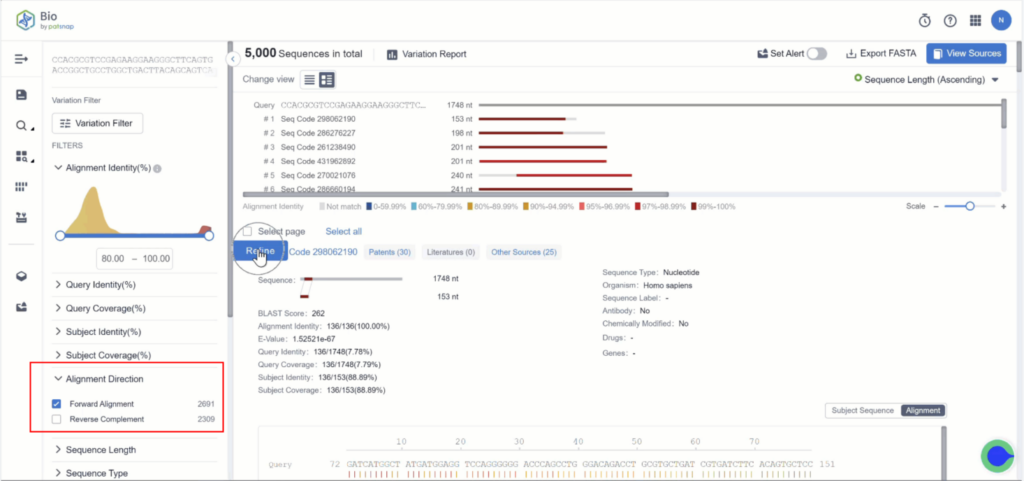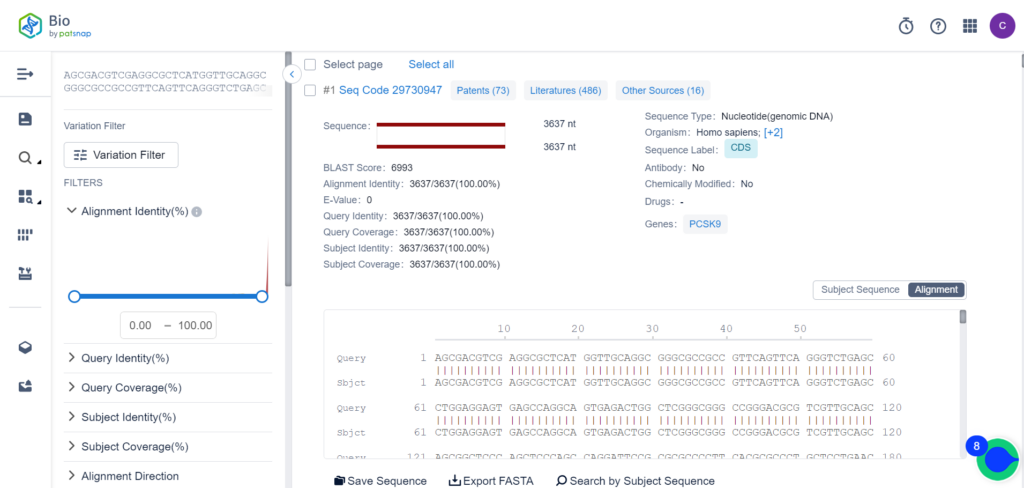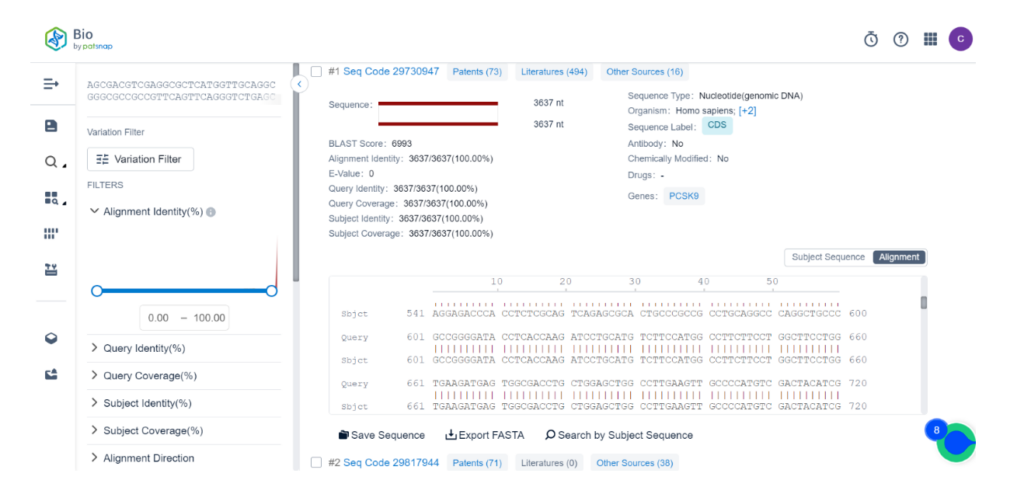Patsnap Bio Releases Alignment Direction Filter on Sequence Results Page
Patsnap, a leading provider of innovation intelligence, is thrilled to unveil its latest enhancement – the Alignment Direction filter. Now accessible on the sequence results page, this cutting-edge feature empowers users to effortlessly refine nucleotide sequences based on their specific requirements.
It offers users greater control over nucleotide sequences, significantly reducing manual filtering operations. As a result, researchers can optimize their workflow, allocating valuable time and resources to their most critical sequences and discoveries.
Alignment Direction Filter Details
When searching for nucleotide sequences in the Patsnap Bio sequence database, the Bio algorithm generates two types of sequence results: forward alignments and reverse complement alignments.


In certain scenarios, users may have the requirement to exclude the reverse complement alignments of target sequences in order to reduce noise. The sequence results page of the Patsnap Bio sequence database has recently introduced a sequence alignment direction filter. This addition allows users to conveniently manually select between forward alignments and reverse complement alignments, resulting in enhanced efficiency in sequence filtering.
Enhanced Sequence-Gene Relationship
This update also introduces significant improvements to the gene annotations in the sequence retrieval results. By removing weakly related sequences that were previously associated with genes solely based on keyword matches, we now provide users with more accurate and relevant information. We have focused on retaining strongly related sequences, which represent the gene’s original protein, DNA, and RNA sequences.
As a result, users gain a deeper understanding of the potential associations or impacts of their query sequences on specific gene sequences through sequence searches. These advancements not only enhance the overall quality of the gene annotations but also optimize the usability and reliability of our sequence retrieval feature.

To learn more about Patsnap Bio, please visit https://www-patsnap-com.libproxy1.nus.edu.sg/request-a-demo/.
Patsnap Bio Database: Empower your biosequence search and analysis with the largest sequence searching platform, combining AI with manual curation
Chase new frontiers in bio-innovation: Gain valuable insights into the potential functions of unknown sequences, explore new research activities, and stay abreast with the global research and development landscape.
Stay on top of competitor movements: Conduct a comprehensive biosequence landscape analysis to track your competitors to see if they are working on similar sequences or moving into new areas.
Validate novelty and freedom to operate searches with ease: Search confidently across the world’s most comprehensive sequence database to ensure you don’t miss any potential infringements
Identify sequences for therapeutic activities: Based on the provided information of a specific target/drug name or functional description, search global biological sequences that meet the criteria and analyze the latest development status based on them.
About Patsnap
Founded in 2007, Patsnap is the company behind the world’s leading AI-powered innovation intelligence platform. Patsnap provides global businesses with a connected, easy-to-use platform that helps them make better decisions in the innovation process. Customers are innovators across multiple industry sectors, including agriculture and chemicals, consumer goods, food and beverage, life sciences, automotive, oil and gas, professional services, aviation and aerospace, and education.
Media Contact:
Antasha Durbin
Email: [email protected]
